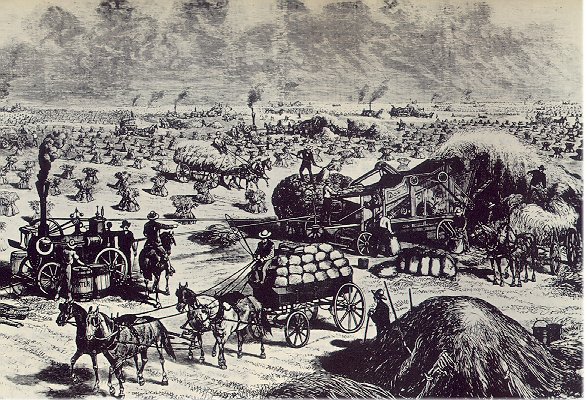Reforms help common people
The hammering impact of uncompromising writers and an increasingly aroused public spurred political leaders to practical measures. Several states began to enact laws designed to ameliorate the conditions under which people lived and worked. Indeed, more social legislation was passed in the first fifteen years of the century than in all previous American history. Child labor laws were strengthened and new ones adopted, raising age limits, shortening hours, restricting night work, requiring school attendance. By this time also, most of the larger cities and more than half the states had established an eight-hour day on public works. In hazardous employment, the workday was likewise subjected to legislative regulation. Hardly less important were the workmen's compensation laws which made employers legally responsible for injuries sustained by employees in the course of their work. New revenue laws were also enacted which, by taxing inheritances, incomes, and the property or earnings of corporations, sought to place the burden of government on those best able to pay.Admirable as were these moves, it was clear that most of the problems to which the reformers addressed themselves could not be solved unless they were projected on a national scale. This was clearly seen by President Theodore Roosevelt who was'himself passionately interested in reform. Roosevelt was, at the same time, a political realist, an ardent nationalist, and a faithful Republican. After Thomas Jefferson, he was the most versatile of Presidents. He had been a rancher and a state governor. He had hunted big game, written books, served in the New York state legislature, administered the New York City police, directed the navy, and fought in Cuba. He read omnivorously and had opinions on everything. Like Andrew Jackson, he had a genius for winning the confidence of the people and for dramatizing all his battles. Within a year he had shown that he understood the great changes sweeping over America; he was determined to give the people a "square deal."
In his enforcement of the antitrust laws, Roosevelt initiated his policy of increased government supervision. The extension of such supervision over the railroads was one of the notable achievements of his administration. He himself called railroad regulation the "paramount issue," and two major regulatory bills were passed. The Elkins Act of 1903 made published rates the lawful standard and made shippers equally liable with railroads for rebates. Under its provisions the government successfully prosecuted erring companies. Subsequently Congress created a new Department of Commerce and Labor with membership in the cabinet. One of its bureaus was empowered to investigate the affairs of large business aggregations. In 1907 it was discovered, for instance, that the American Sugar Refining Company had defrauded the government of a large amount of import duties. The resulting legal actions led to the recovery of over $4,000,000 and the conviction of several of the company's officials. In the same year, the Standard Oil Company of Indiana was indicted for receiving secret rebates on shipments over the Chicago and Alton Railroad. The spirit of the times was reflected in the fine imposed amounting to $29,240,000 on 1,462 separate counts.
 |
| Before 1890, farmers had adopted steam engine for use in threshing grain. Mechanization speeded development of enormous tracts of previously unproductive prairie such as the Dakota territory shown here. |
Other Congressional measures carried still further the principle of federal control. In response to the reformist crusade, the pure-food law of 1906 prohibited the use of any "deleterious drug, chemical, or preservative" in prepared medicines or foods. This was presently reinforced by an act requiring federal inspection of all concerns selling meats in interstate commerce.

No comments:
Post a Comment